TOP SEALING manufactures and supplys many different thermal insulations, including fiberglass cloth, fiberglass rope, fiberglass tape, ceramic fiber cloth, ceramic fiber tape, ceramic fiber rope, silica products, basalt products, and e.g.
High temperature thermal insulation comes in various types, each designed for specific temperatures, environments, and performance requirements. Some of the most common types include:
1.Ceramic fiber insulation: Ceramic fiber insulation is made of ceramic fibers, such as alumina or silica, and is used in high-temperature applications, up to 3000°F. It has low thermal conductivity, high resistance to thermal shock, and excellent chemical stability, making it suitable for applications in the chemical, petrochemical, and steel industries.
2.Mineral wool insulation: Mineral wool insulation is made of rock or slag wool fibers and is used in high-temperature applications, up to 1200°F. It has excellent fire resistance, low thermal conductivity, and good acoustic properties, making it suitable for applications in the construction and HVAC industries.
3.Refractory insulation: Refractory insulation is made of refractory materials, such as alumina, silica, or zirconia, and is used in extremely high-temperature applications, up to 5000°F. It has excellent thermal shock resistance, low thermal conductivity, and high mechanical strength, making it suitable for applications in the aerospace, defense, and nuclear industries.
High temperature thermal insulation has a wide range of applications in various industries, including:
1.Power generation: High temperature thermal insulation is used in power generation equipment, such as boilers, turbines, and exhaust systems, to maintain stable temperatures, improve efficiency, and reduce emissions. It is suitable for applications in coal-fired, gas-fired, or nuclear power plants.
2.Chemical processing: High temperature thermal insulation is used in chemical processing equipment, such as reactors, furnaces, and pipelines, to maintain stable temperatures, reduce energy consumption, and prevent chemical reactions. It is suitable for applications in the chemical, petrochemical, or pharmaceutical industries.
3.Metalworking: High temperature thermal insulation is used in metalworking equipment, such as furnaces, crucibles, and molds, to maintain stable temperatures, improve process control, and reduce energy consumption. It is suitable for applications in the steel, aluminum, or copper industries.
High temperature thermal insulation offers various benefits, including:
1.Energy efficiency: High temperature thermal insulation helps reduce energy consumption and costs by minimizing heat loss or gain and improving equipment efficiency.
2.Safety: High temperature thermal insulation helps maintain stable temperatures and reduce the risk of equipment failure, fires, or explosions, ensuring safe operation.
3.Performance: High temperature thermal insulation helps improve equipment performance, such as process control, product quality, and equipment lifespan, ensuring optimal productivity and profitability.
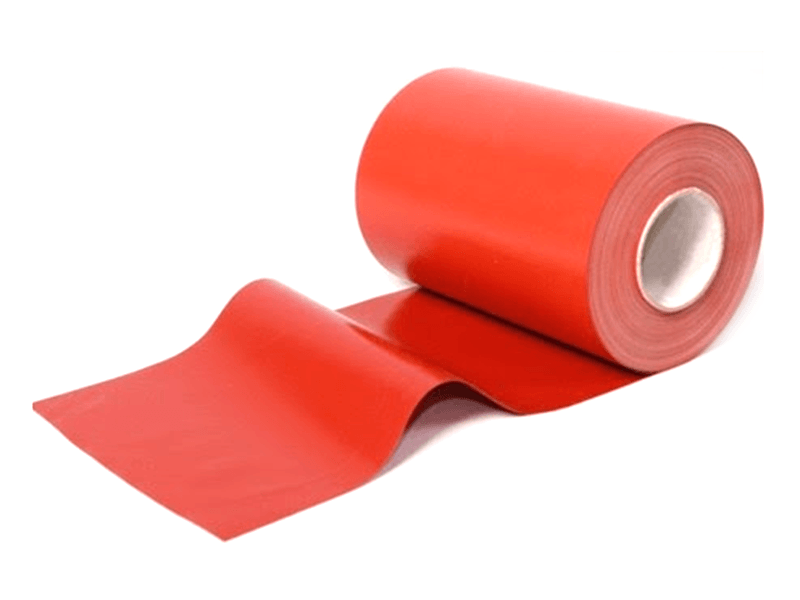
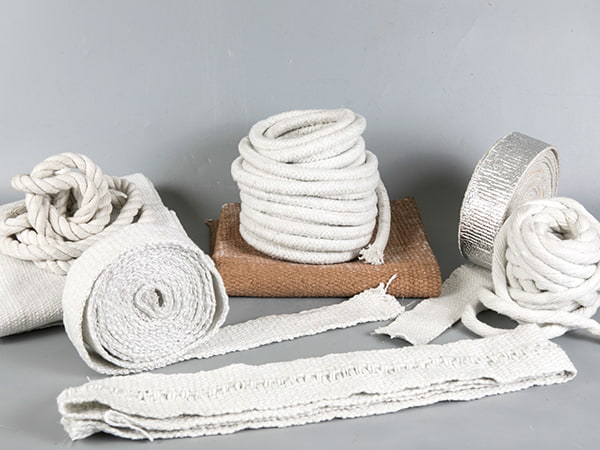
TOP SEALING manufactures a complete range of ceramic fiber products,ceramic fiber cloth,ceramic fiber tape,ceramic fiber rope,ceramic fiber paper,ceramic fiber blanket,ceramic fiber board, ceramic fiber module, ceramic fiber tube, ceramic fiber gloves.Ceramic fibers have a very large aspect ratio and a very small cross-sectional area.Ceramic Fibre Products are manufactured from alumina silica materials with the characteristics of low thermal conductivity, low heat storage, high temperature stability, excellent thermal shock resistance, light weight, and superior corrosion resistance, uesd for thermal insulation of industrial ovens, boiler tubes and flues as well as technical equipment operating at high temperatures.
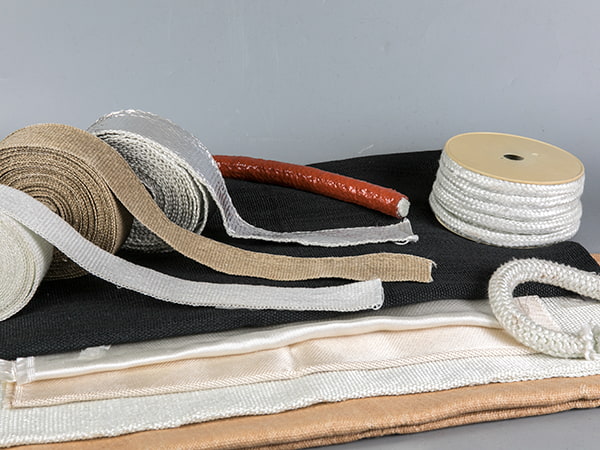
TOP SEALING manufactures a complete range of fiberglass products, Fiberglass Fabric, Fiberglass Tape, Fiberglass Rope, Fiberglass Sleeving. Excellent fire and heat resistance Thermal conductivity (making it useful for insulation applications) and chemical resistance properties similar to glass Durable and economical heat insulation, insulation, high-temperature resistance, inflaming retarding, fireproof, corrosion-resistant etc. folded up in a box, used for heat insulation, electrical insulation, sound insulation mats and fabrics, high strength fabrics or heat and corrosion resistant fabrics.
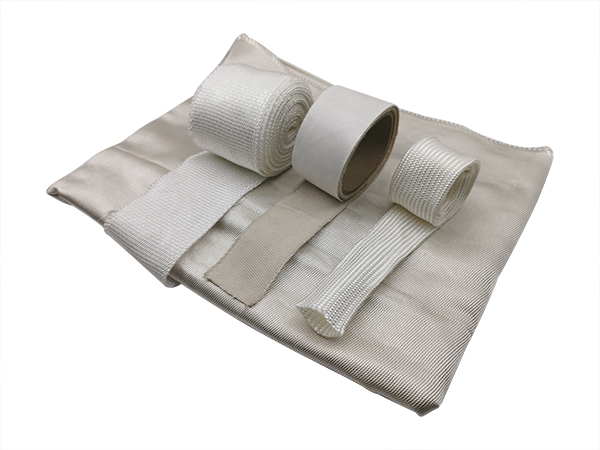
TOP SEALING manufactures a complete range of silica products, High Silica Fabric, High Silica Tape, High Silica Rope, High Silica Sleeve. This high temperature resistance makes it ideal for use in fire fighting equipment such as in fire proof garments. It is also effective in filtering molten metals, which is why it is used in high temperature dust collection filters. The silica fibre cloth also has high flexibility properties, used in many fields such as catalyst carrier materials, sound insulation materials, heat insulation materials, toxic gas adsorption materials and space dust collection materials.
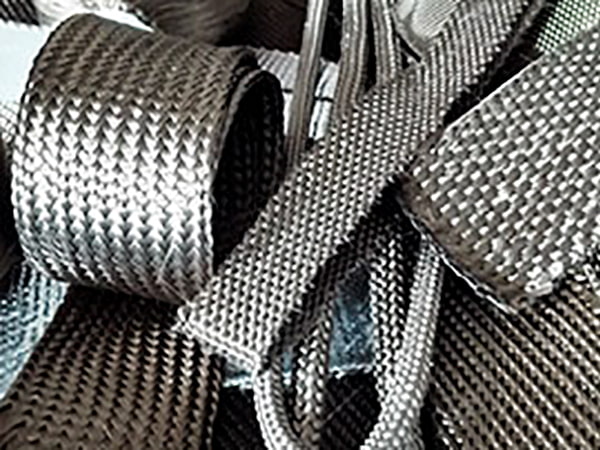
TOP SEALING manufactures a complete range of basalt products, Texturized Basalt Fiber Fabric, Texturized Basalt Fiber Tape, Texturized Basalt Fiber Rope. It can handle temperatures of -260°C to 650°C. Different coatings can improve their properties including better flexibiliy, wearability, wave transparencies, water resistance, radiation resistance, thermo-shock resistance, chemical resistance and excellent temperature resistance (both high and low), used in heat and sound insulation, pipes, beams, fabrics, structural composites, various automotive components, reinforced concrete, insulating composites or friction materials, etc.
TOP SEALING is famous China High Temperature Thermal Insulation and High Temperature Thermal Insulation. It is managed in strict accordance with the ISO9001:2008 standard and provides customers with high quality products and services. The products are exported to more than 200 countries and regions, and enjoys good reputation at home and abroad. We have passed ISO9001:2008, CE, TÜV. We custom OEM and ODM High Temperature Thermal Insulation.
TOP SEALING manufactures and supplys many different thermal insulations, including fiberglass cloth, fiberglass rope, fiberglass tape, ceramic fiber cloth, ceramic fiber tape, ceramic fiber rope, silica products, basalt products, and e.g.
High temperature thermal insulation comes in various types, each designed for specific temperatures, environments, and performance requirements. Some of the most common types include:
1.Ceramic fiber insulation: Ceramic fiber insulation is made of ceramic fibers, such as alumina or silica, and is used in high-temperature applications, up to 3000°F. It has low thermal conductivity, high resistance to thermal shock, and excellent chemical stability, making it suitable for applications in the chemical, petrochemical, and steel industries.
2.Mineral wool insulation: Mineral wool insulation is made of rock or slag wool fibers and is used in high-temperature applications, up to 1200°F. It has excellent fire resistance, low thermal conductivity, and good acoustic properties, making it suitable for applications in the construction and HVAC industries.
3.Refractory insulation: Refractory insulation is made of refractory materials, such as alumina, silica, or zirconia, and is used in extremely high-temperature applications, up to 5000°F. It has excellent thermal shock resistance, low thermal conductivity, and high mechanical strength, making it suitable for applications in the aerospace, defense, and nuclear industries.
High temperature thermal insulation has a wide range of applications in various industries, including:
1.Power generation: High temperature thermal insulation is used in power generation equipment, such as boilers, turbines, and exhaust systems, to maintain stable temperatures, improve efficiency, and reduce emissions. It is suitable for applications in coal-fired, gas-fired, or nuclear power plants.
2.Chemical processing: High temperature thermal insulation is used in chemical processing equipment, such as reactors, furnaces, and pipelines, to maintain stable temperatures, reduce energy consumption, and prevent chemical reactions. It is suitable for applications in the chemical, petrochemical, or pharmaceutical industries.
3.Metalworking: High temperature thermal insulation is used in metalworking equipment, such as furnaces, crucibles, and molds, to maintain stable temperatures, improve process control, and reduce energy consumption. It is suitable for applications in the steel, aluminum, or copper industries.
High temperature thermal insulation offers various benefits, including:
1.Energy efficiency: High temperature thermal insulation helps reduce energy consumption and costs by minimizing heat loss or gain and improving equipment efficiency.
2.Safety: High temperature thermal insulation helps maintain stable temperatures and reduce the risk of equipment failure, fires, or explosions, ensuring safe operation.
3.Performance: High temperature thermal insulation helps improve equipment performance, such as process control, product quality, and equipment lifespan, ensuring optimal productivity and profitability.